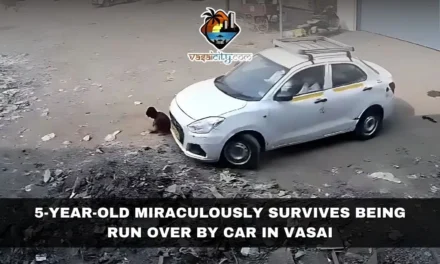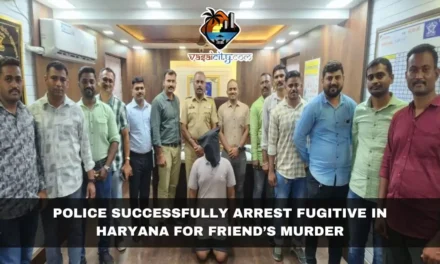In a bid to improve communication during investigations and avoid delays in sensitive cases, police constables and lower-ranking officers in Maharashtra’s Mira-Bhayander-Vasai-Virar (MBVV) region are enrolling in spoken English classes. The initiative, launched after high-profile investigative failures linked to language gaps, aims to empower officers to interact confidently with suspects, victims, and witnesses—even when conversations switch to English.
Why English Matters in Policing
For years, MBVV officers from Marathi-medium backgrounds have struggled during interactions with English-speaking individuals. Many hail from rural Maharashtra and received education primarily in Marathi, leaving them unprepared for multilingual urban challenges. This gap became glaringly obvious during the Shraddha Walkar murder case in 2022, where language barriers reportedly let a key suspect slip through the cracks.
“When someone walks into a station speaking English, some of our personnel freeze. They hesitate to ask questions or clarify details, which hurts investigations,” explained a senior MBVV officer. “This training isn’t just about language—it’s about building confidence.”
The Case That Exposed the Problem
The trigger for this initiative was the mishandling of Aftab Poonawala, the prime accused in the gruesome murder of Shraddha Walkar. Poonawala, who allegedly killed his partner, dismembered her body, and stored remains in a refrigerator, initially avoided scrutiny due to his fluent English.
In May 2022, when Walkar’s father filed a missing complaint at Vasai’s Manikpur police station, Poonawala reportedly responded to questions in polished English with a foreign accent. Officers, unable to fully grasp his statements, let him go twice. This delay sparked national outrage once the crime came to light months later.
“Poonawala’s language and demeanor confused the team,” said an officer involved. “They doubted their own understanding and didn’t push harder. That mistake cost us critical time.”
Bridging the Gap: How the Training Works
The MBVV program, supervised by Deputy Commissioner Jaywant Bajbale, focuses on practical skills:
- Everyday Conversations: Greeting complainants, asking open-ended questions, and clarifying statements.
- Legal Vocabulary: Terms related to crimes, evidence, and procedures.
- Accent Neutralization: Understanding diverse English accents to avoid misinterpretation.
- Role-Playing: Simulating scenarios like interviewing suspects or calming distressed victims.
Classes are held twice weekly, with batches of 30–40 officers. Trainers use audio clips, group discussions, and mock interactions to reduce hesitation. “We’re not turning them into scholars,” said a trainer. “We’re teaching them to listen, respond, and spot inconsistencies—no matter the language.”
Voices from the Ground
Constable Rajesh More*, who joined the force in 2018, shared his experience: “Earlier, I’d avoid English-speaking complainants. Now, I practice phrases like ‘Can you repeat slowly?’ or ‘Let me note this down.’ It’s made me more approachable.”
Another officer added, “In a recent theft case, the victim spoke only English. I managed to record details without calling a colleague. Small wins matter.”
Challenges and Long-Term Goals
While enthusiasm is high, challenges persist. Many officers juggle odd shifts and family responsibilities, making attendance sporadic. Others initially felt embarrassed about their accents. To address this, trainers emphasize practicality over perfection.
“The goal is effective communication, not fluency,” stressed DCP Bajbale. “We want officers to extract accurate information, not win debates.” Future plans include expanding the program to cybercrime terminology and regional dialects.
A Model for Other Regions?
Experts argue that language training is crucial for modern policing. “Crime transcends linguistic boundaries,” said criminal psychologist Dr. Anjali Rao. “Officers who communicate better build trust, de-escalate tensions, and solve cases faster.”
The MBVV initiative has drawn attention from other states, with Karnataka and Tamil Nadu expressing interest in similar programs.
Conclusion
For MBVV’s police force, learning English isn’t about prestige—it’s a tool to serve better. As constables master phrases like “Please elaborate” or “Where did this happen?”, they’re not just breaking language barriers; they’re bridging the gap between law enforcement and the community. In a country as diverse as India, that might just be the key to justice.
- Some Names have been changed for privacy.













